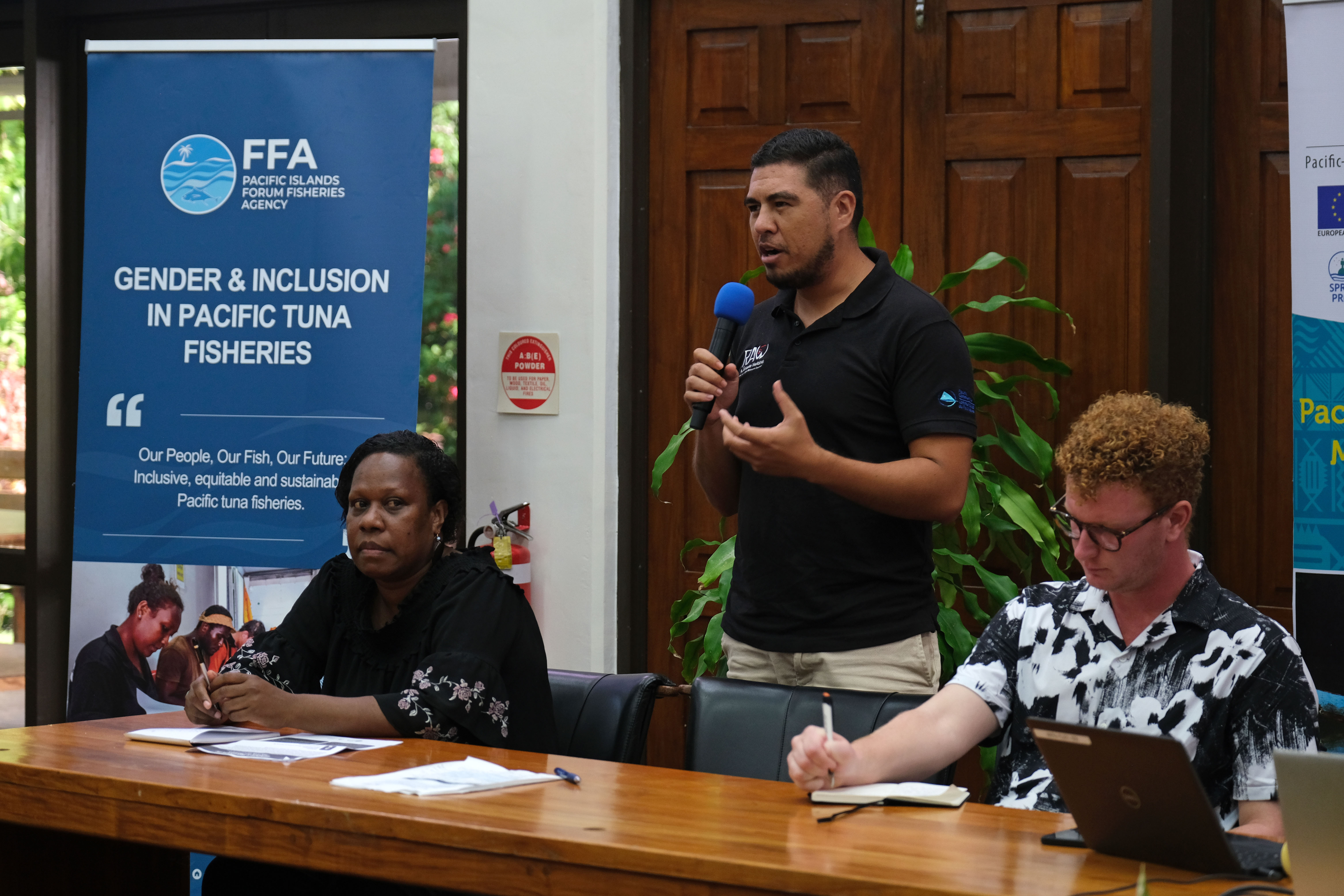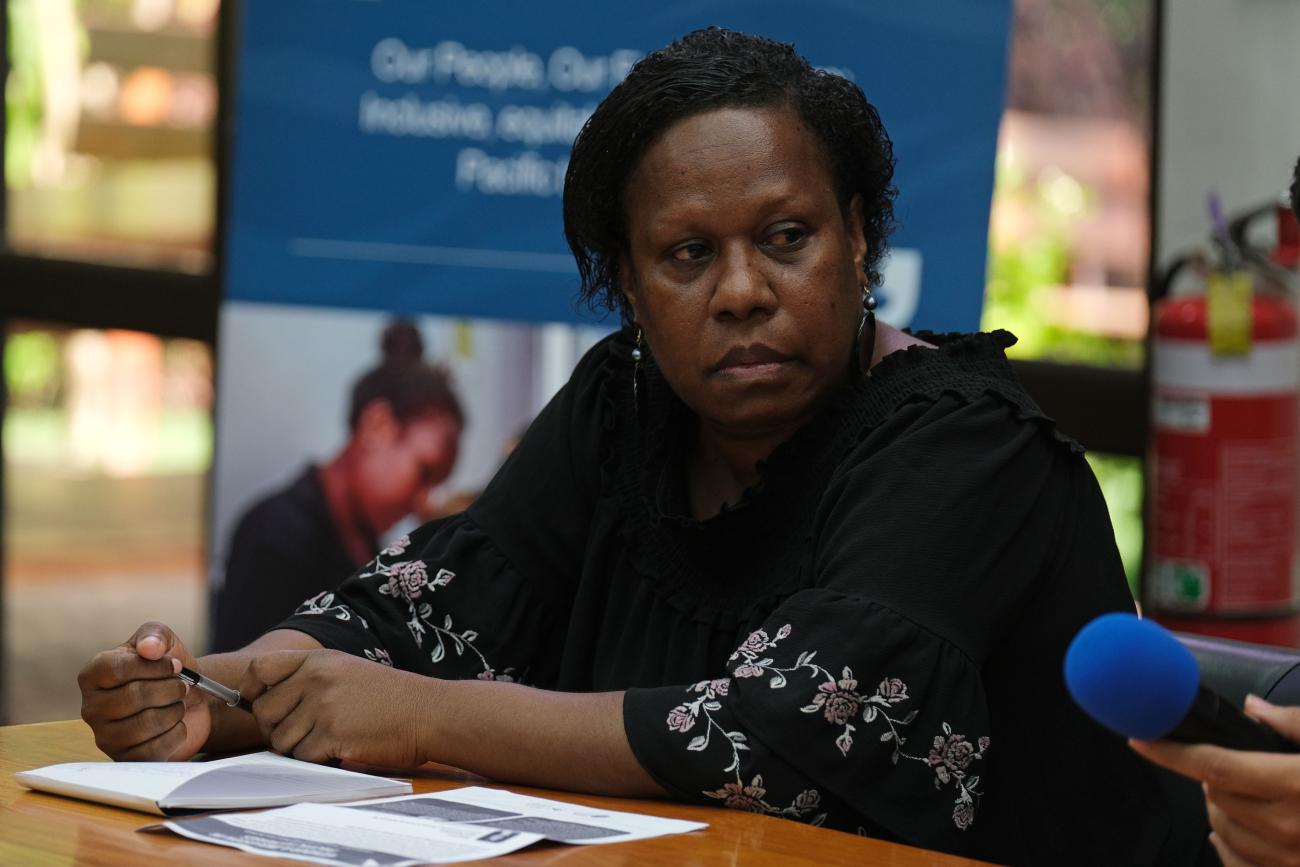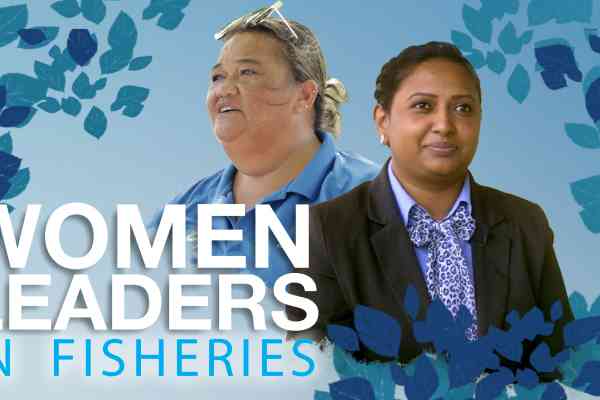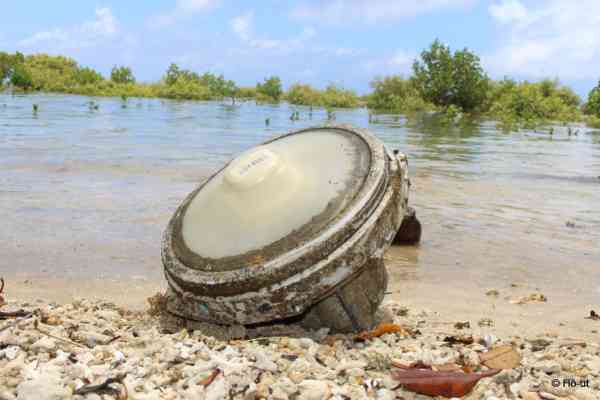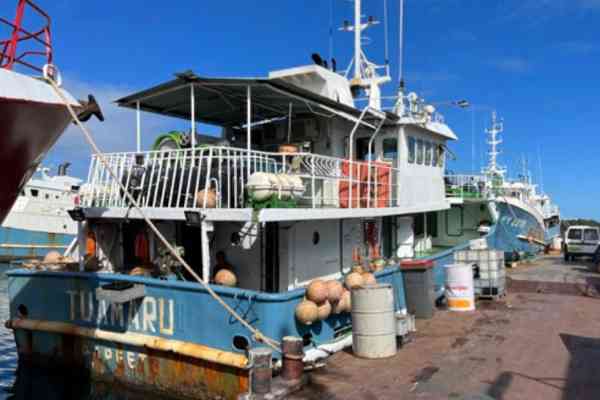As one of the panellists of the Gender & Social Inclusion (GESI) in Pacific Fisheries Symposium that is taking place in Honiara, Solomons from April 9th until the 11th, 2024, Maryanne Itopai Waizepa explains her vision on women in fisheries that comes from her personal history.
Maryanne Itopai Waizepa was born and raised in Papua New Guinea (PNG) and has been a Partnership Programme Manager for the Baptist Union of PNG in the Building Community Engagement Programme at DT Global since April 2023. She is one of 190 women participating in the Pacific Fisheries Leadership Programme (PFLP) since 2018. This programme has significantly changed her working life in terms of teamwork, collaboration, planning, mitigating challenges, diversifying, and adaptive management using different lenses.
In her current position, Maryanne is leading a team of 12 project officers & team leaders and is working on five thematic Key Areas: GEDSI/GET, education, health, DRR & peacebuilding. She also drives four strategic objectives under Baptist Union: to Improve communication & collaboration, risk matrix across project delivery, capacity building and monitoring & evaluation. Since 2023, the team has fully participated in the Building Community Engagement Programme at DT Global in Papua New Guinea, funded by the Australian Government Department of Foreign Affairs and Trade (DFAT).
When she participated in the PFLP Leadership for Change course in 2022, she was the project coordinator for Linupa Fish Farmers in the Eastern Highlands of Papua New Guinea. She delivered programmes under GEDSI, DRR, peacebuilding & climate change. Out of the four programmes, GEDSI was the most challenging, as her project implementing officers were all men. Additionally, the programme area is a patrilineal society, where men own the fish farms dominate the decision-making. She explains the importance of delegation and giving team members autonomy to achieve their goals.
"PFLP brought so much change for me. The course helped me with adaptive management; I moved to a new position with a lot more responsibility. I have changed things at work, understanding why things work the way they do, making changes to the way we communicate and the way teams work, and more teamwork and collaboration. If you want to bring change, you've got to give your staff some power, some autonomy to make decisions. "
Maryanne spoke about the challenges working women face, particularly in fisheries.
"PFLP has massively improved my knowledge and confidence and my ability to address some of the gender issues we face here in PNG. Being a female boss can be difficult, but you have to push that aside and change your mindset. You know, we are all equal. I was able to see my team, who were mostly men, through a different lens and it helped me to work with them in a different way."
Maryanne said that PFLP helped her with the challenges women face managing their time and commitments to work and family, especially as they enter more senior roles.
"As women, we face many challenges at home and in the workplace. We have many things to do, and there is a big demand on our time from our family, our teams, and our bosses. After PFLP, I was more able to prioritise, and I felt more energised working towards outcomes with my team. I'm trying to encourage that energy to flow through to the rest of the team."
Part of Maryanne's success is being able to share what she learnt at PFLP with her colleagues. She has been doing this regularly, bringing new ideas into her workplace to ensure better communication and outcomes in fisheries.
"I drafted a capacity-building programme for the project managers on adaptive and technical challenges, mitigating risk, and understanding your teams. I have been running that on a fortnightly basis. When you share, and they understand it, we have a common goal. I don't want to leave anyone behind; everyone on the team must be on the same speed, and that makes a great team."
Speaking about the importance of focussing on the Pacific in PFLP, Maryanne commented on the value of understanding the Pacific culture, the challenges women face, and supporting women's full participation.
"PFLP works with the real situations that Pacific women are facing, providing support and building capacity to meet those challenges. It really helped me to participate fully. Understanding myself has been the biggest thing after PFLP. Normally, we don't want to know who we are or our weaknesses, but I learnt who I am, and it helped me to work better with others."
